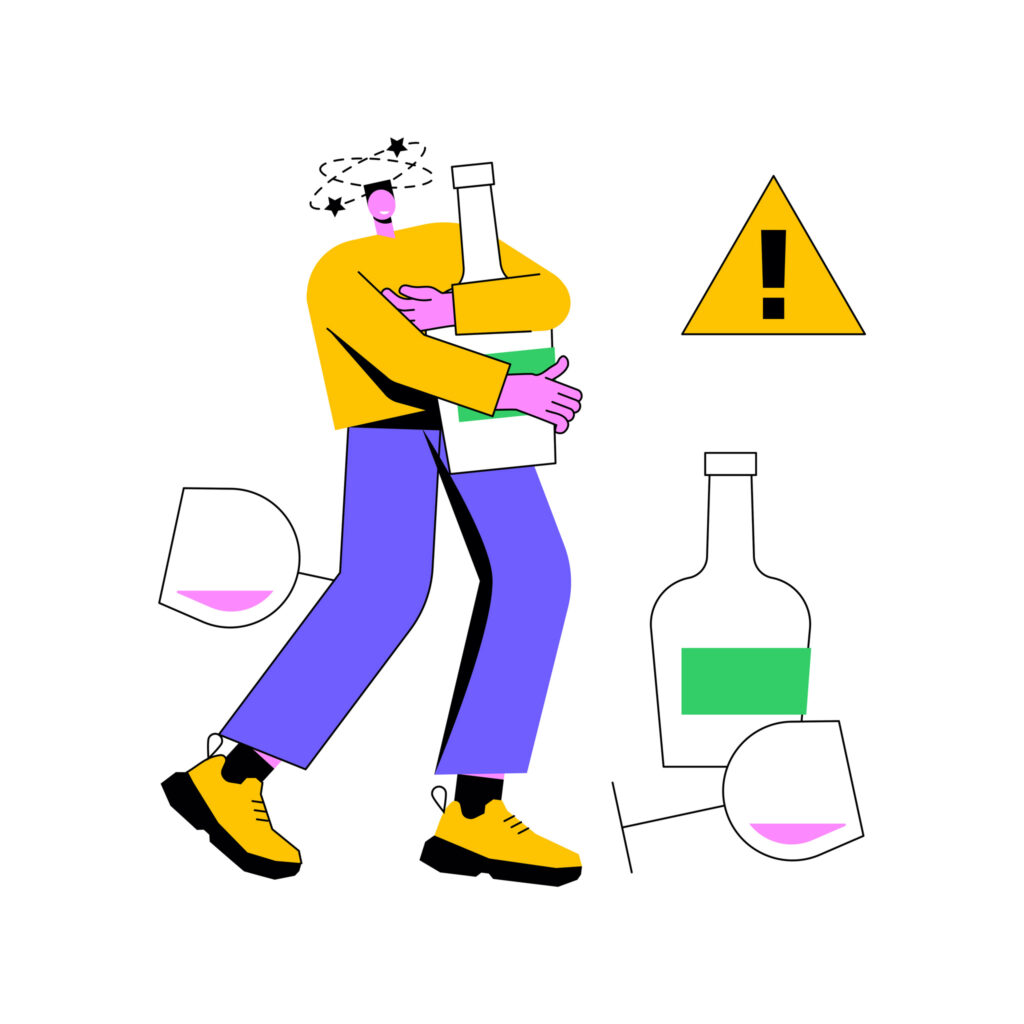Is your son drinking increasing amounts of alcohol? Is he drinking on a daily basis? Is he suffering from the negative consequences of his alcohol consumption, such as job loss, DUI charges, or dropping grades? Is your son showing physical or emotional symptoms of withdrawal such as trembling hands, increased heart rate, vomiting, sweating, restlessness, insomnia, irritability, anxiety, low self-esteem, or other mental health issues? Does he deny that his alcohol addiction affects his life in negative ways? Do you ever think to yourself “my son is killing himself with alcohol”?
As parents, watching our children navigate the complex terrain of adolescence and early adulthood can be both rewarding and challenging. However, when alcohol enters the equation, the potential for dangerous or even deadly consequences can become very real very quickly. In today’s world, an increasing number of young lives are consumed by alcoholism.
It can be hard for other family members to understand how to help a child who is struggling with alcohol abuse, but it’s important to navigate your child’s addiction with a clear understanding of the signs and symptoms of alcohol addiction and substance abuse so that you are empowered to identify unacceptable behavior, set healthy boundaries, provide emotional support, and insist your son attends a treatment program and begins the recovery process.

Identifying Alcoholism in Your Child
As parents, it is our duty to ensure the welfare of our children as they navigate the trials and tribulations of growing up. However, as they enter the world of adolescence and young adulthood, we must also be vigilant about the dangers that our children will eventually encounter. Over 50% of high schoolers report having consumed alcohol in the past year, making alcohol consumption and its adjacent risks a pervasive issue for teens and young adults. Identifying the signs of alcoholism in your child is essential to providing the support they need before the situation escalates.
Changes in Behavior
Keep an eye out for abrupt shifts in behavior. If your child becomes increasingly secretive, moody, or isolates themselves from family and friends, it could be a sign of a deeper issue.
Decline in Academic Performance
A sudden drop in grades or a lack of interest in school might indicate that your child’s focus has shifted away from their studies due to alcohol consumption.
Social Shifts
Pay attention to shifts in your child’s social circle. If they start spending time with peers who engage in risky behaviors or exhibit a pattern of alcohol use, it could be influencing their choices.
Physical Changes
Look for physical signs such as bloodshot eyes, flushed skin, or sudden weight loss. These could be indications of alcohol-related health issues.
Neglecting Responsibilities
If your child neglects responsibilities at home, work, or school, it might be due to their preoccupation with alcohol or its consequences.
Mood Swings
Severe mood swings, irritability, and unexplained bursts of anger could stem from alcohol abuse.
Anxiety and Depression
Alcohol misuse can exacerbate or even trigger anxiety and depression. Be attuned to sudden shifts in your child’s mental health.
Withdrawal Symptoms
Notice if your child exhibits symptoms like trembling hands, increased heart rate, sweating, restlessness, and insomnia. These are indicative of withdrawal when alcohol is absent.

Related: What Every Parent Needs To Know About Addiction
When Alcohol Addiction Becomes Deadly
What began as occasional, social consumption of beers and cocktails can quickly and quietly escalate into a life-altering battle with alcoholism. Alcoholism can bring a host of physical, psychological, and social consequences including heart disease, liver disease, depression, anxiety, ruined family relationships, and more. Even more menacing is the perilous dance with death during alcohol withdrawal, a stark reminder of the potentially lethal grip of alcoholism.
The Deceptive Path to Addiction
Alcohol addiction isn’t always recognizable from the outset. What starts as casual drinking can spiral into dependency, fueled by biological, genetic, and environmental factors. The body’s tolerance increases, leading to a need for larger quantities to achieve the desired effects. As addiction tightens its grip, the user’s life becomes progressively consumed by the need to obtain and consume alcohol, often at the cost of relationships, health, and livelihood.
The Fatal Perils of Alcohol Withdrawal
For those trapped in the clutches of alcoholism, attempting to break free comes with its own set of life-threatening challenges. Alcohol withdrawal, characterized by a range of physical and psychological symptoms, can be perilous – even fatal – without proper medical supervision. Delirium tremens (DTs), a severe manifestation of withdrawal, can result in hallucinations, seizures, high blood pressure, and fever. In extreme cases, DTs can lead to heart attacks, strokes, or a state of medical crisis that demands immediate intervention.
Understanding the Risks
The risk of fatality during alcohol withdrawal is a stark reminder of the physiological changes that chronic alcohol abuse brings about. Prolonged alcohol use disrupts the balance of neurotransmitters in the brain, affecting critical functions like heart rate, body temperature, and blood pressure regulation. Abrupt cessation of alcohol can send the body into a state of shock, and if not managed properly, the consequences can be deadly.
Addressing Alcoholism
The discovery that your son is battling alcoholism can feel like a punch in the gut. As parents, we do everything we can to protect our children, so when we find out they have been grappling with alcoholism, it can be an overwhelming mix of emotions that leaves us feeling powerless and defeated. The journey ahead might seem uncertain, but it’s crucial to remember that your love, support, and active involvement can be a beacon of hope guiding your son toward a path of recovery and healing.
The Substance Abuse and Mental Health Services Administration (SAMHSA), emphasizes the importance of reaching out for support when struggling with alcohol use disorder. Living in acceptance, taking care of yourself, and connecting with like minded people are all steps in the right direction.
Approaching with Empathy
The first step in addressing alcoholism in the family is to approach the situation with empathy and understanding. Remember that addiction is a complex issue often fueled by factors beyond an individual’s control. Choose a time to talk when both you and your son are calm, sober, and receptive. Show genuine concern for his well-being and emphasize that your goal is to support his journey to recovery.
Expressing Concern without Blame
When addressing your son’s alcoholism, use “I” statements to communicate your worries without placing blame. For instance, say, “I’ve noticed changes in your behavior that concern me,” rather than accusingly stating, “You’ve been ruining your life with alcohol.” This approach opens the door for a more productive conversation and reduces the likelihood of your child being unreceptive and shutting down.
Stop Enabling
It’s important to avoid enabling behaviors that inadvertently support your son’s alcohol abuse. This might involve refraining from providing financial assistance that could be used to purchase alcohol, or refusing to cover up the consequences of his actions. While it may be difficult, setting boundaries that discourage his harmful behaviors can be a powerful step toward his recovery.
Fostering Open Communication
Creating an environment of open communication is vital throughout this journey. Encourage your son to share his feelings, struggles, and progress. Regular check-ins can reinforce the fact that you’re there to support him unconditionally, even when the path to recovery encounters challenges.
Seek Professional Help
Addressing alcoholism often requires professional intervention. Therapists, support groups, addiction specialists, outpatient treatment centers, inpatient rehabilitation facilities, or sober living homes can provide valuable insights into the best approaches for your family’s unique situation. Alcoholism treatment programs through a designated addiction treatment center can provide medical detoxification, and address mental illness to help your child overcome their addiction.
However, 30-day treatment programs are sometimes not enough to instill lasting change and lock in the healthy behaviors that your child needs to become a contributing family member and society member. This is where a sober living home steps in. Sober living environments provide a bridge between intensive treatment and the challenges of returning to regular life. These environments offer structured routines, ongoing accountability, and a supportive community of peers, all of which are vital for maintaining sobriety in the long run. By attending a sober living program, your child will build a strong foundation for sustained recovery. Sober living homes provide the skills necessary to navigate life’s complexities without succumbing to the grip of alcoholism.

Recovery From Drug and Alcohol Problems
The journey from youth to adulthood is a delicate balance between growth and vulnerability, and when alcohol misuse enters the scene, it can tip that balance dangerously askew. From the subtle shifts in behavior to the alarming consequences of alcohol misuse, your vigilance as a parent can be the difference between life and death.
If you find yourself struggling to guide your child out of the clutches of alcoholism, remember that there is hope. New Life House sober living offers a structured, supportive environment that fosters growth, healing, and a fresh start. Reach out for guidance on how to help free your teen or young adult son from the shackles of alcohol addiction.
Our robust recovery model treats multiple facets of addiction including drug abuse, alcohol dependence, family issues, and any underlying mental health disorders. We offer family programming through group family therapy and unparalleled involvement, outpatient programming to address alcohol dependence and mental health problems, educational programming, and alumni programming to strengthen our recovery community.
The path ahead may be challenging, but your determination, empathy, and family support can help your child break free from the chains of alcoholism. Contact us today to find out how our sober living in Los Angeles can save your loved one.
Last Updated on June 24, 2024

